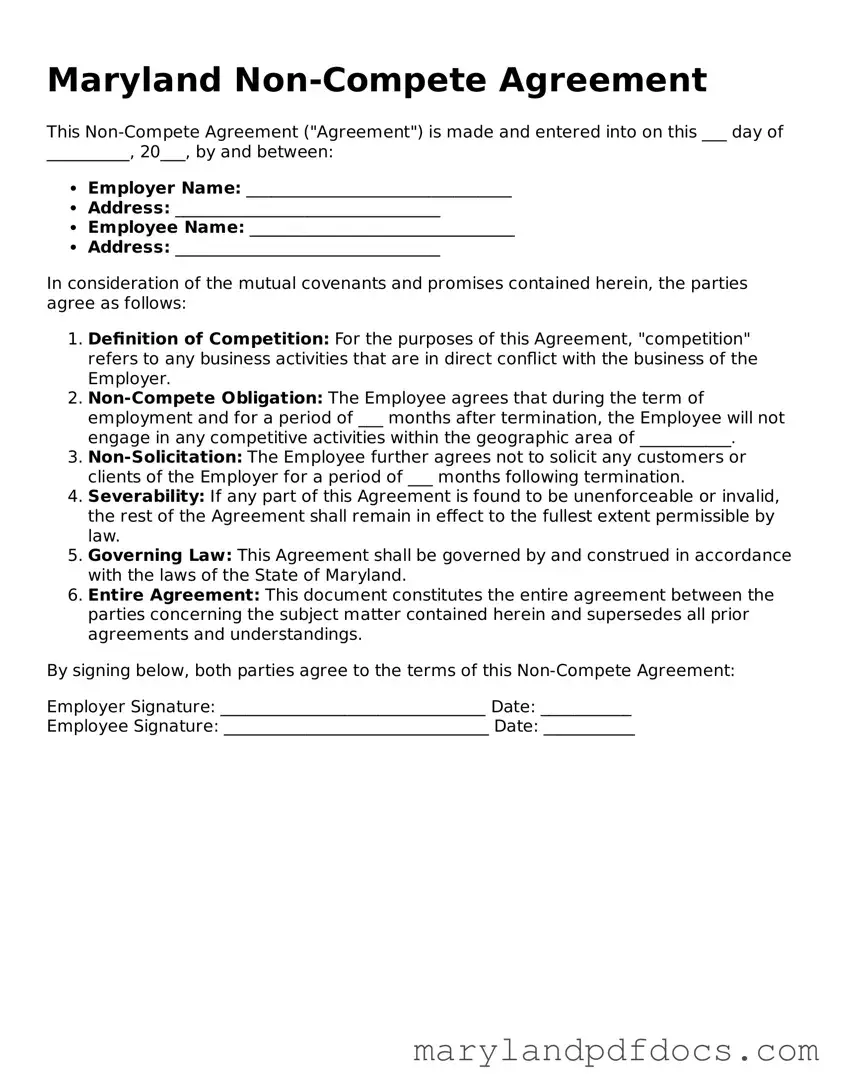Printable Maryland Non-compete Agreement Template
A Maryland Non-compete Agreement is a legal document that restricts an employee from working for competitors or starting a similar business for a specified period after leaving their job. This form helps protect a company's confidential information and trade secrets. If you need to create a non-compete agreement, consider filling out the form by clicking the button below.
Launch Non-compete Agreement Editor

Printable Maryland Non-compete Agreement Template
Launch Non-compete Agreement Editor

Launch Non-compete Agreement Editor
or
Free Non-compete Agreement PDF
You’ve already started — finish it
Fill out Non-compete Agreement digitally in just minutes.